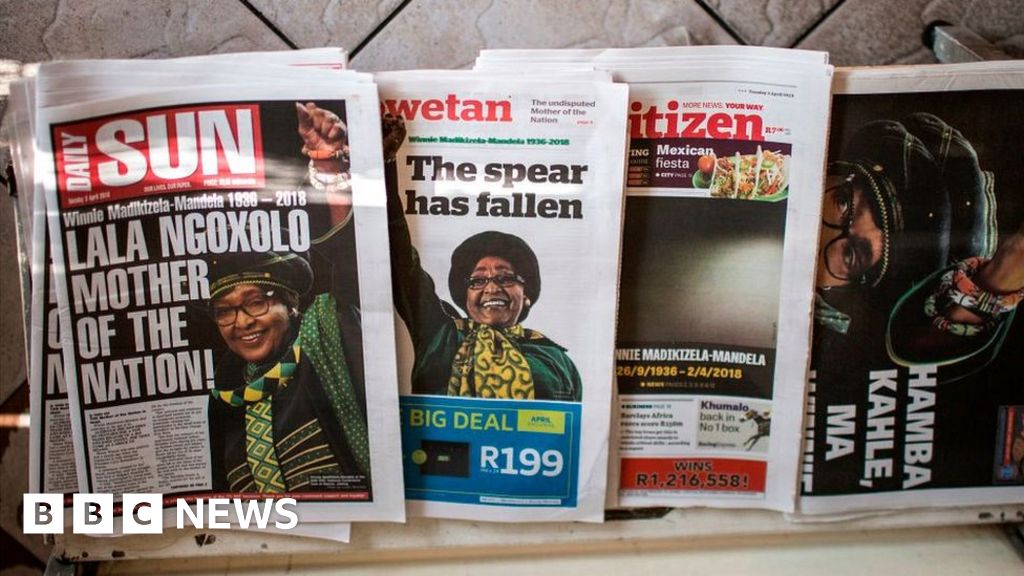The Best Strategy To Use For South African Current Events
The Best Strategy To Use For South African Current Events
Blog Article
Some Known Details About South African Current Events
Table of ContentsThe smart Trick of South African Current Events That Nobody is Talking AboutSouth African Current Events Things To Know Before You Buy5 Simple Techniques For South African Current EventsThe 9-Second Trick For South African Current Events7 Simple Techniques For South African Current Events
The Limpopo Mirror is published in Louis Trichardt, a town in the north of South Africa's Limpopo district. Picture: Anton van Zyl Today the Competitors Payment is penetrating exactly how on-line news is impacted by AI chatbots, search and advertising innovation. The end result of the hearings is vital for the future of news reporting in South Africa.
Subscriptions and sales of private copies were normally suggested to cover this, however the genuine money was advertising - and for some publications, like the Cape Argus in Cape Town, the classifieds. South African current events. The marketers sponsored the information, whether in a nationwide everyday, or a little weekly paper distributed in a rural town
Arounds this income spent for the reporter to attend the month-to-month council conference, cover institution occasions and visit the court to discover that may have wound up on the incorrect side of the legislation. Consider example the Limpopo Mirror, a weekly paper released in Louis Trichardt which one of us, Anton, has.
The expense of printing was approximately 15% to 20% of our turnover. The advertisement loading (the percent of area committed to advertising and marketing as opposed to information) was between 50% and 60%.
Some Known Incorrect Statements About South African Current Events
The decline in advertising and marketing causes less pages in the paper, and much less area for newspaper article. As the internet came to be progressively popular, papers began publishing their stories on-line, usually free. Limpopo Mirror was among the very first papers in the country to release a web site with weekly news updates.
In the starting a lot of us were driven by testing and the thrill to be early adopters so we didn't lose to the competition. There was no viable service model. Adverts were unusual and it took a while before this became the major way people review their information.
Things about South African Current Events
It was hassle-free, prompt and normally free, especially as the rate of data went down. At the same time, purchases of published newspapers began to decrease. A couple of instances: In 2006 the Sunday Times was the biggest weekend break newspaper in South Africa, with an audited flow of simply over half a read what he said million duplicates.
This consisted of more than 11,000 digital duplicates. The Daily YOURURL.com Sun was as soon as the biggest marketing daily, and in the last quarter of 2007 flaunted a flow of over 513,000 duplicates. In 2014 it dropped to listed below 13,000 marketed copies and changed its circulation technique. This has actually been the fad for most long-running papers on the earth.
The freesheet design does not work well in informal negotiations or country areas. Bulk decreases of papers have actually to be dropped off at buying centres, for instance, and wastefulness of these is high.
To create a newspaper has ended up being extremely expensive, which indicates marketing tolls have had to enhance. To go was the classified sections of newspapers.
Things about South African Current Events
Several huge players, such as Property24 and Privateproperty, started to control the home advertising and marketing industry. Then the second-hand car field discovered one more haven with sites such as Autotrader, Cars24 and various other startups. While this was all occurring, newspapers such as the Limpopo Mirror tried to maintain up. Although print circulation went down to around the 4,000 mark, the visitors did not move away.
The difficulty was to turn that audience into an earnings design that would certainly pay for quality journalism.
Social media maintains journalists on their toes. Though there is no information to confirm this, it seems to us that blunders are found much more swiftly, and unethical behaviour pounced on with higher vigour nowadays. The inexpensive of entry has also enabled brand-new kinds of information magazines to start, like GroundUp, which Nathan edits.
Examine This Report on South African Current Events
Why is advertising and marketing not working for information magazines? Advertising and marketing income has actually been ruined mostly by Google Advertisements and social media adverts.
BNN is an information publisher. Below's how they define themselves: "Our dedication is to supply sincere, fact-based, and impartial international coverage that additional hints can be relied on. We strive to aid citizens address the issues that matter most in their lives. We are the pioneers, the guardians, and the truth-seekers." Their information stories constantly rate highly on Google News searches.

Days after Anton's story was released we both browsed "Vhembe" (the region where Anton reports from) on Google Information. Frequently BNN news stories, plagiarised and relatively revised by ChatGPT or some various other AI chatbot, appear higher in Google search than their authentic equivalents.
Two various Google items drive this rip-off: Google Browse drives viewers to BNN; Google Advertisements gives the incentive for BNN's parasitical organization design. Far in 2024, 72% of GroundUp's web traffic has come to our site via search engines.
Report this page